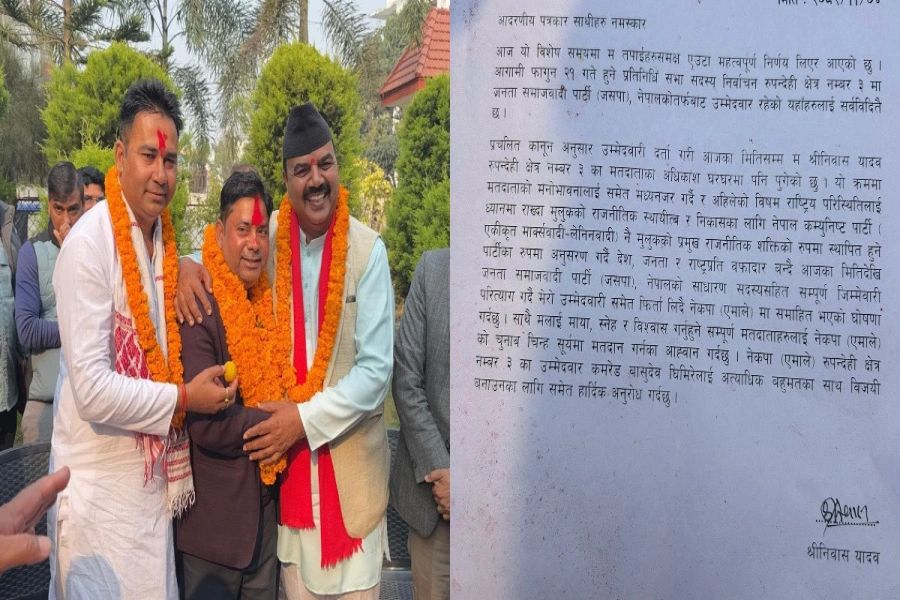The much-hyped Gautam Buddha International Airport (GBIA) in Bhairahawa recently celebrated its first anniversary. However, it has not yet commenced full operations, raising concerns among private sector investors who have invested over Rs 60 billion in the project. The airport was constructed at a total cost of US$ 76 million, with significant contributions of US$ 37 million from the Asian Development Bank (ADB) and approximately US$ 11 million from the OPEC Fund for International Development, while the remaining funding came from the Nepal government. The failure to fully operate the airport not only affects the government and private sector investors but also jeopardizes the economic potential of the region. This should serve as a lesson for policymakers to conduct thorough studies to ensure the commercial viability of any new airport before construction begins, especially considering the ongoing discussions to build Nijgadh International Airport.
With the start of the construction of GBIA, the private sector started pouring in investment to develop various infrastructures. There has been substantial investment in hotels, infrastructure, services, trade, and tourism, with the expectation of attracting around 20,000 people daily to the airport. However, the current situation has left investors worried about potential risks to their investments. As a newspaper, we believe that the government must take responsibility for fully operating the airport and addressing the concerns of entrepreneurs. Furthermore, the government should engage with the neighboring country, India, to resolve any issues related to air entry points and overcome potential obstacles in order to bring the airport into full operation.
Commercial flight service begins at GBIA, PM Deuba inaugurates...

The construction of hotels and infrastructure around the airport has involved significant investment, with approximately Rs 30 billion already spent on 146 operational hotels and an additional Rs 20 billion invested in 21 hotels currently under construction. The failure to operate the airport as expected puts these investments at risk, causing entrepreneurs to face financial strain and consider abandoning their businesses. This situation highlights the urgent need for the government to take proactive measures and ensure the airport's full operation in order to protect these substantial investments.
In addition, the government should focus on developing other necessary infrastructure in the region to support the airport's operations. For example, two cable car projects in Butwal, with multi million-rupee investments, are targeting incoming tourists through the airport. These projects can contribute to the overall development of the region and enhance the airport's potential as a tourism hub. To attract more airlines and ensure the airport's viability, the government has provided discounts on fees for aviation services, which should be extended for another year. This incentive can help attract international airlines and promote the airport as a favorable destination.
Moreover, the Nepal Airlines Corporation should take the lead in operating flights from the airport while also encouraging other domestic and international airlines to initiate services from GBIA. The recent incidents of diverted flights highlight the need for GBIA to be recognized as an alternative airport. International and domestic flights have consistently chosen to divert to airports outside Nepal, such as Lucknow in India, rather than considering GBIA. This points to a lack of coordination between airlines, hotels, and airport management for accommodating diverted flights.
The government should address these issues by facilitating agreements between international airlines and hotels near the airport to ensure suitable accommodation and logistics for passengers during emergencies. It must prioritize the full operation of GBIA not only to safeguard its own investment but also to safeguard the substantial private sector investment in hotels, infrastructure, and tourism. This can be achieved by conducting comprehensive studies to ensure the commercial viability of the airport, resolving any issues with neighboring countries such as air entry routes, and actively promoting the airport to domestic and international airlines. By addressing these concerns and taking immediate action, the government can prevent the airport from becoming a burden and ensure it becomes an economic asset for the nation.


































